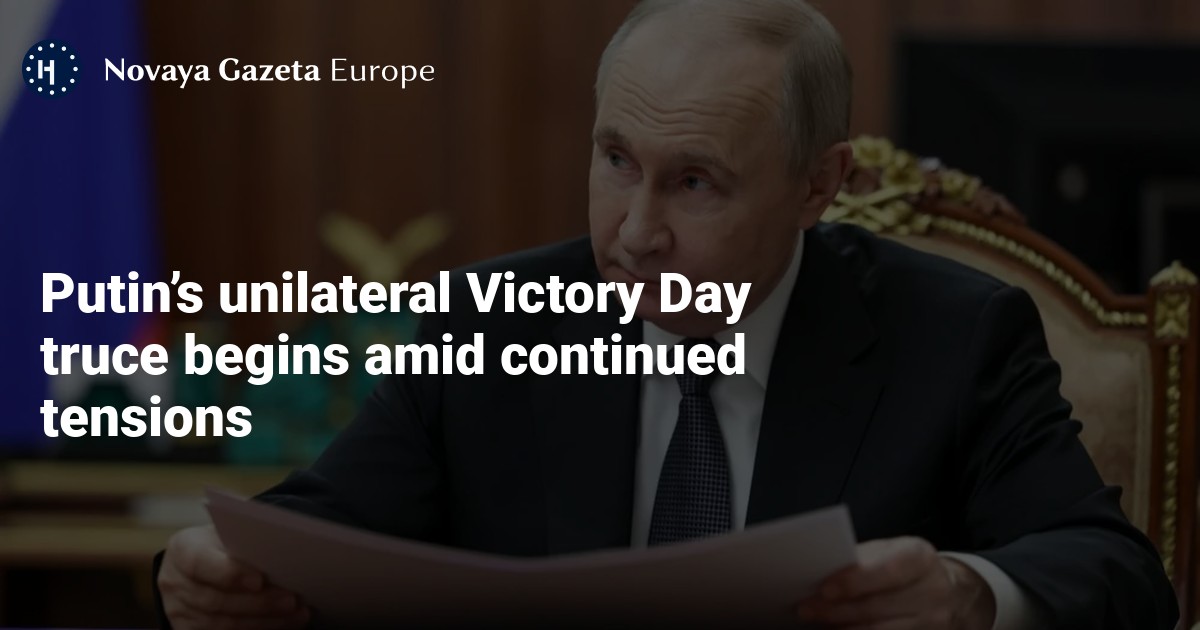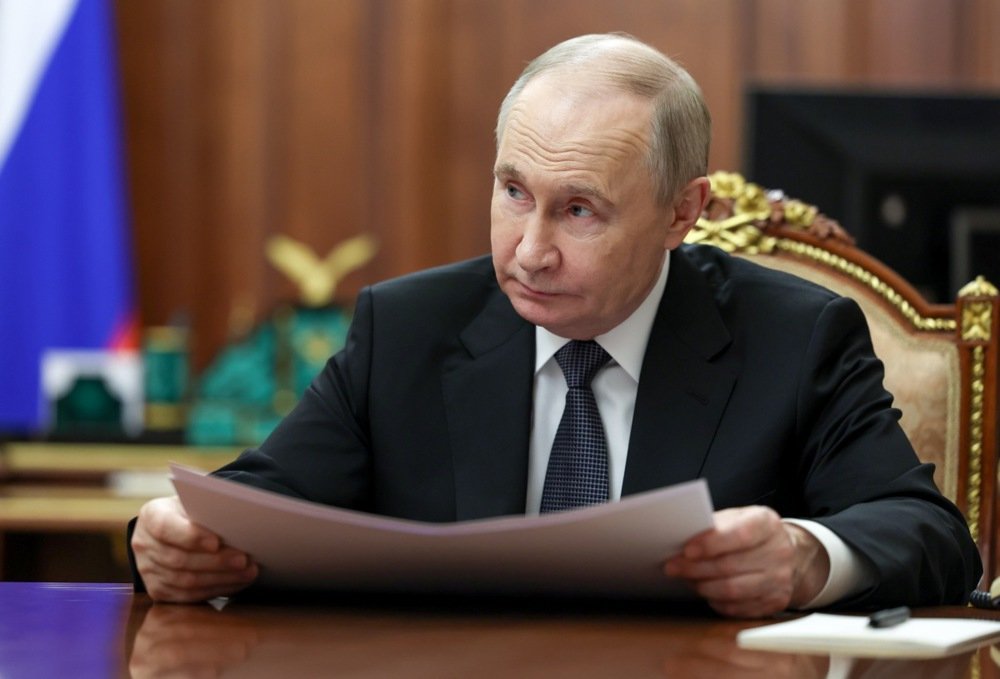




Vladimir Putin. Photo: EPA-EFE/VYACHESLAV PROKOFYEV/SPUTNIK/KREMLIN POOL
A unilateral ceasefire declared by Vladimir Putin came into effect at midnight on 8 May, ahead of the 80th anniversary of the Soviet victory in World War II. The 72-hour truce is scheduled to last until midnight on Saturday, according to the Kremlin.
Announced on 28 April, the ceasefire was presented as a humanitarian gesture to commemorate Victory Day — Russia’s most significant military holiday — which this year marks the 80th anniversary of the end of World War II in Europe, which Moscow intends to celebrate with a large parade.
The move was not coordinated with Ukraine, however, and Ukrainian President Volodymyr Zelensky firmly rejected the proposal, insisting that any ceasefire should last at least 30 days to be meaningful.
Despite Moscow’s announcement, Ukrainian military sources reported overnight that Russia launched aerial bombs at the Sumy region in northeastern Ukraine. No information on casualties or damage was immediately available, and no further Russian strikes were reported.
Air raid alerts were issued after midnight in several Russian regions in response to potential Ukrainian attacks, though it is unclear whether Ukraine carried out any strikes overnight.
Meanwhile, temporary restrictions were introduced at Nizhny Novgorod Airport, according to RIA Novosti, though the reasons for the disruption were not officially disclosed. Heightened Ukrainian drone activity in recent days has led to a surge in flight disruptions in a number of Russian cities.
